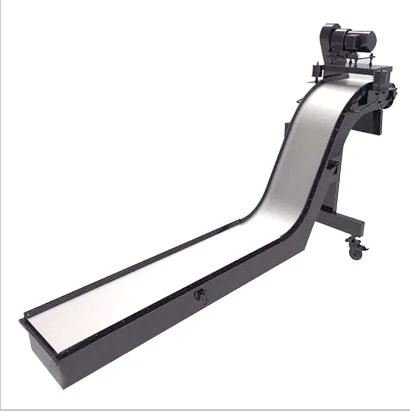steel cable carrier
Understanding Steel Cable Carriers Essential Components for Industrial Applications
Steel cable carriers, often referred to as cable management systems or drag chains, are vital components in various industrial applications, particularly in environments where machinery and equipment require organized management of cables and hoses. These carriers provide effective solutions for maintaining the integrity and safety of cable systems, ensuring seamless operation and minimizing wear and tear. With the increasing complexity of industrial machinery, the significance of steel cable carriers has escalated, making them a focal point for companies aiming to enhance efficiency and durability.
Function and Design
The primary function of a steel cable carrier is to guide and protect moving cables and hoses that power and control machines. These carriers are designed to accommodate a variety of cables, including power, control, and data lines, allowing them to flex and move with the equipment they serve. The design of steel cable carriers typically features a series of interconnected links that create a flexible channel. This channel allows for smooth movement without the risk of tangling or excessive wear that can lead to costly downtime or equipment failure.
Steel cable carriers come in various sizes and configurations, tailored to meet the specific needs of different applications. Factors such as the type of cables being used, environmental conditions, and the range of motion required must be considered when selecting the appropriate carrier. Many steel cable carriers are equipped with features such as modular designs for easy customization, protective covers to shield against contaminants, and mounting options that ensure stability and safety.
Advantages of Steel Cable Carriers
One of the most significant advantages of using steel cable carriers is their durability. Unlike their plastic counterparts, steel carriers are robust and resistant to harsh environmental conditions, making them ideal for heavy-duty industrial applications. They can withstand extreme temperatures, chemicals, and mechanical stress, ensuring a longer lifespan and reducing the need for frequent replacements.
steel cable carrier

Furthermore, steel cable carriers enhance safety in the workplace. By organizing cables and hoses neatly, they prevent tripping hazards and minimize the risk of equipment damage. This organization contributes to a cleaner work environment, promoting safety and efficiency among workers.
Another key benefit is the reduction in maintenance costs. By protecting cables from abrasion and movement-related wear, steel carriers can significantly extend the lifespan of the cables themselves. This longevity leads to fewer repairs and replacements, resulting in cost savings for businesses. Additionally, the ease of access that steel carriers provide allows for quick inspections and repairs, further reducing downtime.
Applications Across Industries
Steel cable carriers are utilized across a multitude of industries, including manufacturing, robotics, aerospace, and automotive sectors. In manufacturing, they can manage cables and hoses for robotic arms, CNC machines, and conveyor systems. In robotics, these carriers allow for the dynamic movement required by robotic joints while maintaining cable integrity.
In the aerospace and automotive industries, where precision and reliability are paramount, steel cable carriers play a crucial role in ensuring that electrical and hydraulic systems operate smoothly without the risk of damage. Their ability to withstand extreme conditions further solidifies their importance in these high-stakes environments.
Conclusion
In conclusion, steel cable carriers are indispensable components in modern industrial applications. Their robust design, coupled with the numerous advantages they offer, makes them a reliable choice for managing cables and hoses in environments where safety, efficiency, and durability are critical. As technology continues to evolve and industries become more complex, the role of steel cable carriers will only become more pronounced, underscoring the necessity of investing in quality cable management systems for any industrial operation.








